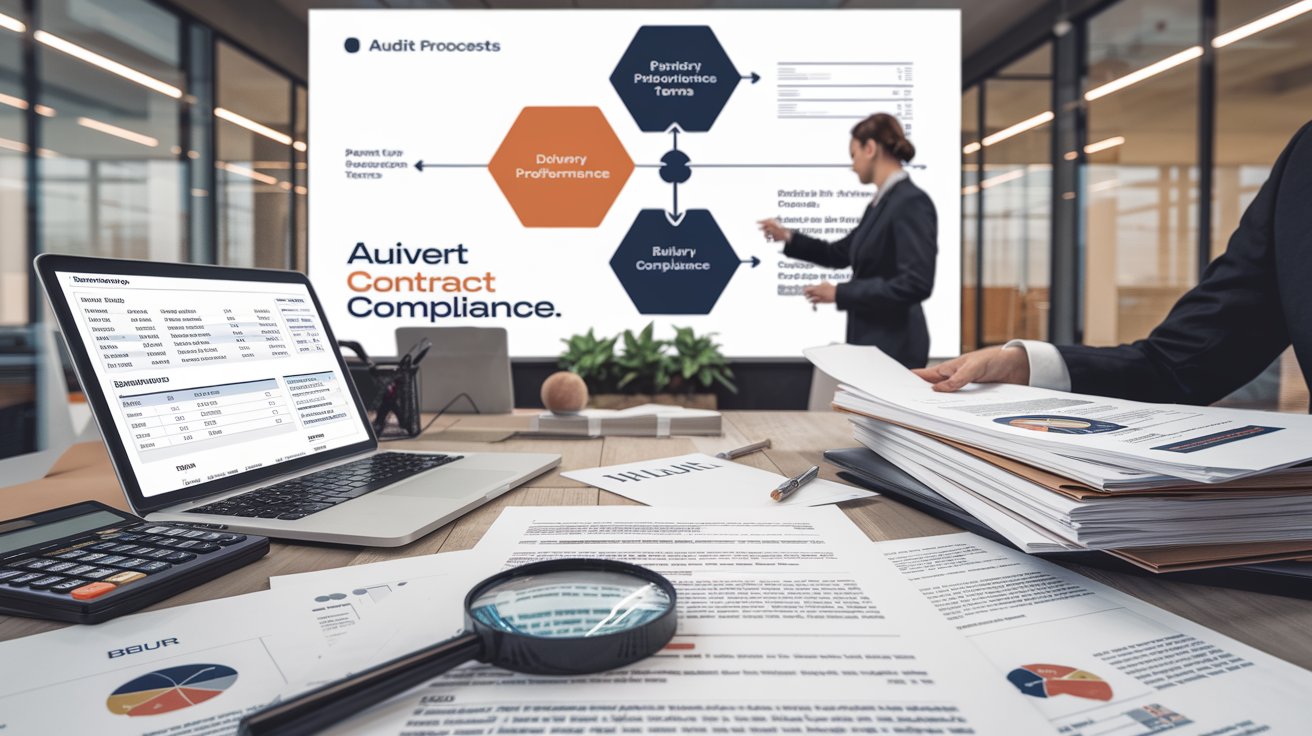In today's corporate environment, contract compliance audits are critical for protecting firms from financial risks, legal issues, and reputational harm. Whether dealing with suppliers, vendors, or internal contracts, a thorough audit guarantees that all parties follow the agreed-upon requirements. But how do you successfully audit contract compliance? Let's look at the essential steps, benefits, and best practices.

What is Contract Compliance?
Contract compliance is the process of ensuring that all parties to a contract perform their duties as stipulated. It entails verifying financial terms, deliverables, service-level agreements (SLAs), and regulatory compliance. A compliance audit is a systematic evaluation of contractual responsibilities.
Importance of Contract Compliance Audits
- Risk Mitigation: Identifies potential breaches or deviations before they escalate.
- Financial Accuracy: Ensures correct payments, avoiding overpayments or underpayments.
- Legal Protection: Safeguards against potential lawsuits by ensuring terms are met.
- Improved Relationships: Strengthens trust between contracting parties through transparency.
- Regulatory Compliance: Ensures adherence to industry-specific legal requirements.
Steps in the Audit Process
- Define Objectives:
Establish the scope of the audit—financial accuracy, SLA adherence, or regulatory compliance. - Collect Data:
Gather all relevant documents, including contracts, amendments, invoices, and performance reports. - Review Contract Terms:
Analyze key contract clauses, payment schedules, delivery timelines, and penalties. - Evaluate Performance:
Compare actual performance against contractual obligations, identifying discrepancies. - Document Findings:
Record all findings in a detailed report, highlighting issues, risks, and potential resolutions. - Develop Recommendations:
Provide actionable insights to rectify non-compliance and strengthen future contract management.
Best Practices for Effective Audits
- Automate the Process: Use contract management or audit software to streamline data collection and analysis.
- Involve Stakeholders: Collaborate with legal, finance, and operational teams to ensure comprehensive oversight.
- Regular Audits: Conduct periodic reviews to maintain continuous compliance.
- Monitor Changes: Track contract amendments and ensure they are audited for compliance.
Benefits of Using Audit Software
Modern audit software systems improve the efficiency of contract compliance audits by automating data analysis, reporting, and real-time monitoring. These tools eliminate human error, save time, and provide greater insight into contract adherence.
An effective contract compliance audit is more than simply a best practice; it is critical to ensuring corporate integrity and success. Companies that employ a rigorous audit process may assure accountability, reduce risk, and foster long-term partnerships.
Ready to improve your contract compliance? Begin auditing smarter today!
